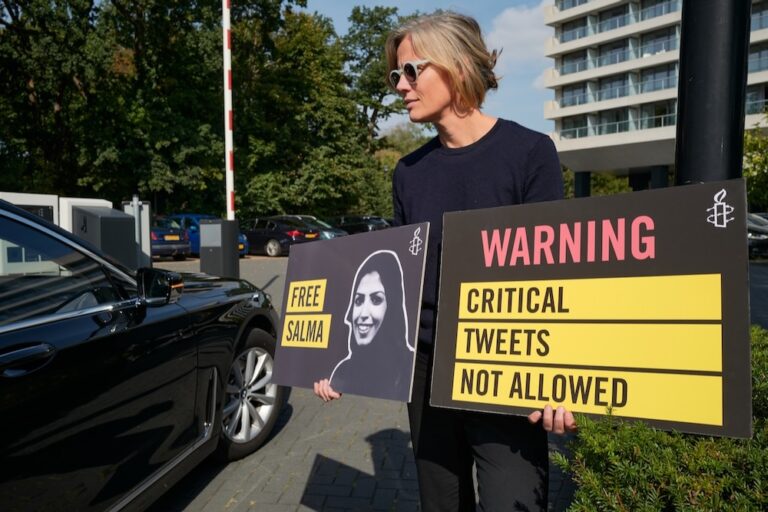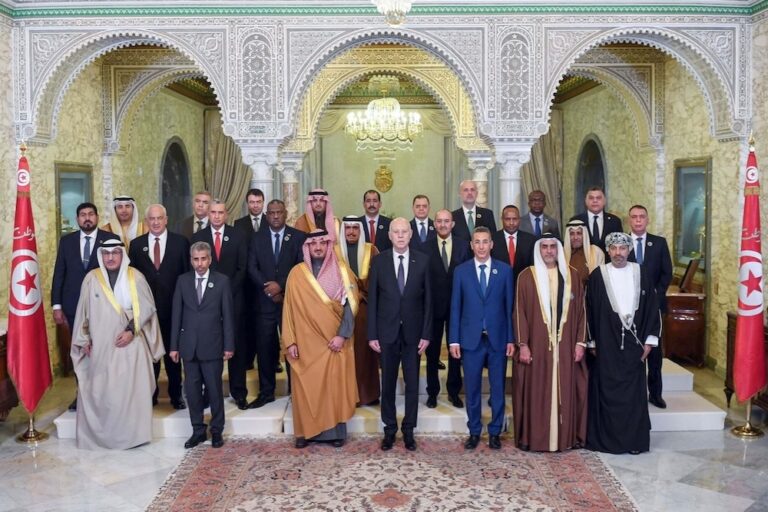(WAN/IFEX) – The following is a 10 December 2006 WAN press release: Beirut, 10 December 2006 Yemen Editor Wins First Arab Newspaper Prize Nadia Al-Saqqaf, Editor-in-chief of the Yemen Times, has been awarded the 2006 Gebran Tueni Award, a new prize from the World Association of Newspapers to honour an editor or publisher from the […]
(WAN/IFEX) – The following is a 10 December 2006 WAN press release:
Beirut, 10 December 2006
Yemen Editor Wins First Arab Newspaper Prize
Nadia Al-Saqqaf, Editor-in-chief of the Yemen Times, has been awarded the 2006 Gebran Tueni Award, a new prize from the World Association of Newspapers to honour an editor or publisher from the Arab region.
Ms. Al-Saqqaf, who is the first woman ever to be appointed an editor in Yemen, received the award Sunday during the opening ceremony of the “Media In Danger – Press Under Siege” conference in Beirut, Lebanon. More than 1,000 people attended the ceremony.
The prize, which honours the memory of Gebran Tueni, the Lebanese publisher and WAN Board Member who was killed by a car bomb in Beirut last December, was presented to Ms. Al-Saqqaf for demonstrating the values incarnated in Mr. Tueni: attachment to freedom of the press, courage, leadership, ambition, and high managerial and professional standards.
The award carries a 10,000 Euro scholarship to enable Ms. Al-Saqqaf to undertake advanced newspaper leadership training through the training institute of An-Nahar, the Tueni family’s newspaper in Lebanon.
“This is recognition of Yemeni journalists generally, and especially Yemeni women working in the media. This should encourage them to grow and not give up,” said Ms. Al-Saqqaf. “I feel honoured to be recognized after only two years as Editor-in-chief.”
Roger Parkinson, past president of WAN who presented the award, said: “Ms. Al-Saqqaf has expressed the determination to defend the independent editorial policy set by her father and founder of the Yemen Times, Abdulaziz Al-Saqqaf, and to make a priority of high professional standards and skills.
“Despite a difficult media environment, Ms. Al-Saqqaf intends to make a difference by bringing to the readers of the Yemen Times accurate and meaningful information that they can trust. In this regard, her ambitions to raise journalistic skills within the newsroom, to improve the position of female journalists and to support independent news media in Yemen are most commendable.”
Ms Al-Saqqaf, 29, took over the position of Editor-in-chief of the Yemen Times from her brother Walid in 2005. It is one of the most outspoken newspapers in the country.
She considers the Yemen Times to be a newspaper with a mission: it should not only criticise the government but also furnish solutions. Editorially, she focuses on raising the newspaper’s general standards, with a strong focus on human rights, gender issues and women’s rights.
The Yemen Times employs 60 people and has an average circulation of 10,000 copies. It is self-financed through advertising and sales revenue and is the most widely read English publication in Yemen.
Ms. Al-Saqqaf has made it a priority to raise the professional standards of the journalists working at the newspaper and to improve the competence of female journalists in Yemen. Legal education is among upcoming projects for the staff, as well as training in how to report on scientific developments.
Ms. Al-Saqqaf is a graduate of Sterling University in the United Kingdom and holds a Master’s degree in Information Systems Management. Before taking over the reins of the Yemen Times, she worked for Oxfam in Yemen.
Gebran Tueni was a unique figure in WAN affairs for almost 20 years, as a leading member of its Press Freedom Committee, a Board member for more than a decade, a regular participant in missions to press freedom “hot spots” and a constant advisor and support to the leadership of the organisation on Arab and press freedom issues. WAN and the Tueni family created the award to encourage other courageous and independent publishers, editors and newspapers in the Arab world.
The Paris-based WAN, the global organisation for the newspaper industry, defends and promotes press freedom world-wide. It represents 18,000 newspapers; its membership includes 76 national newspaper associations, newspaper companies and individual newspaper executives in 102 countries, 12 news agencies and 10 regional and world-wide press groups.


